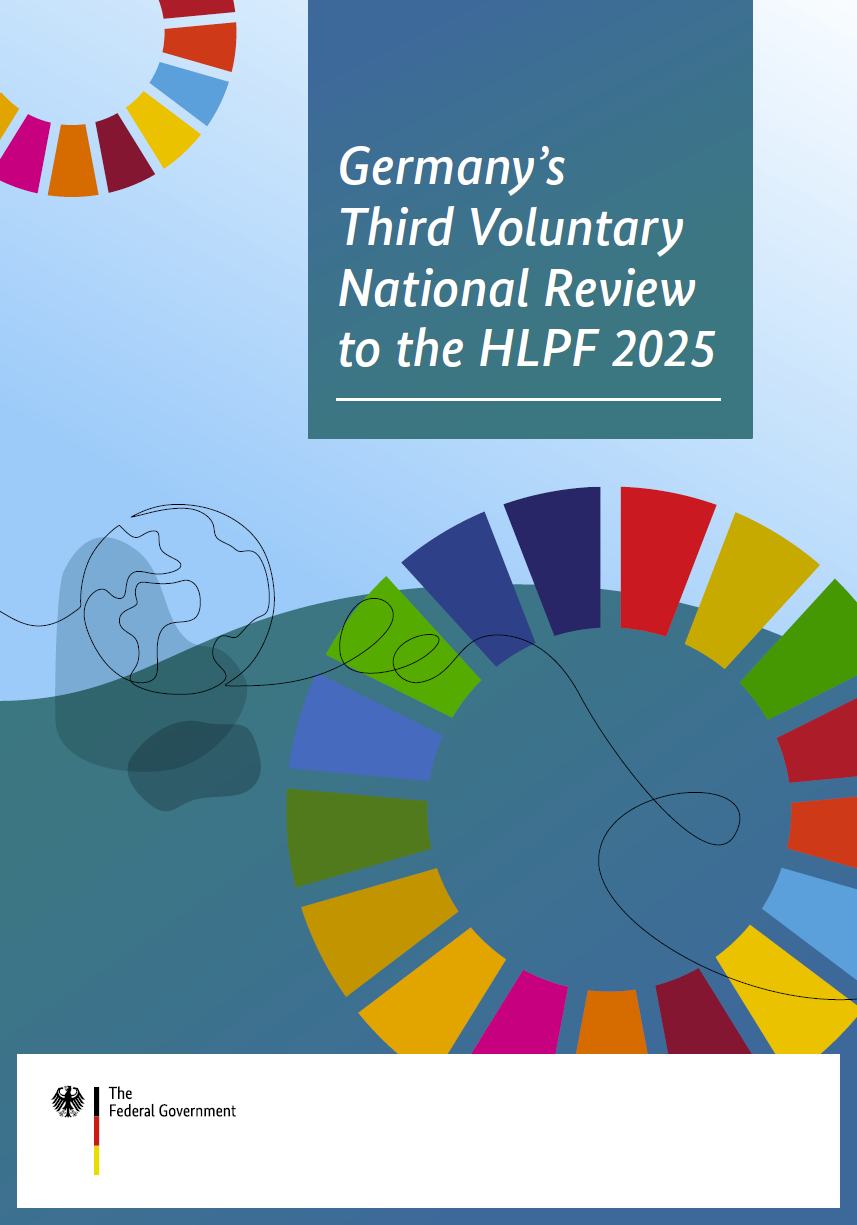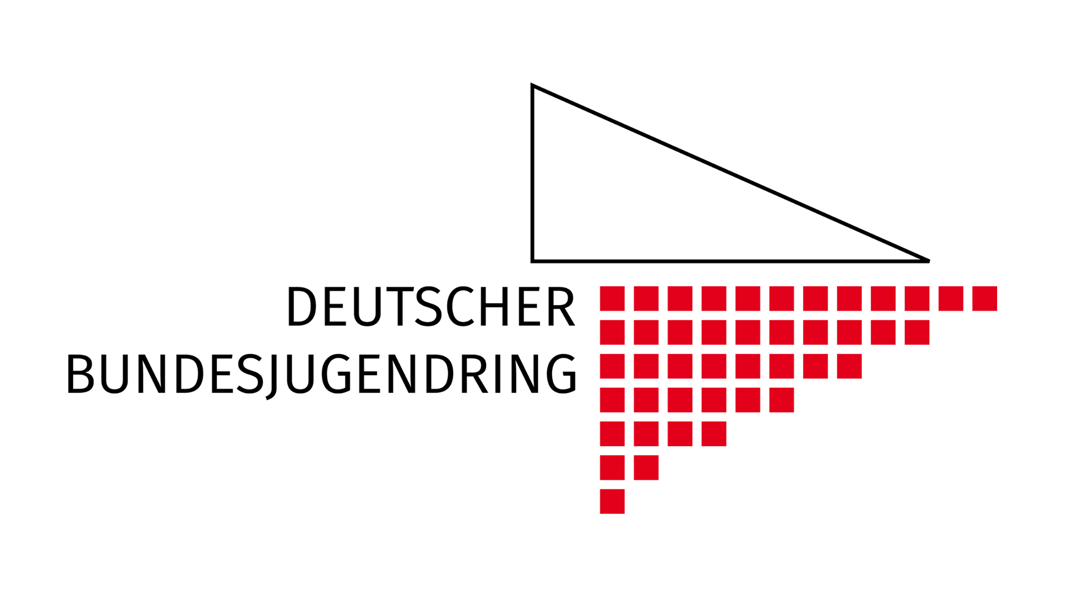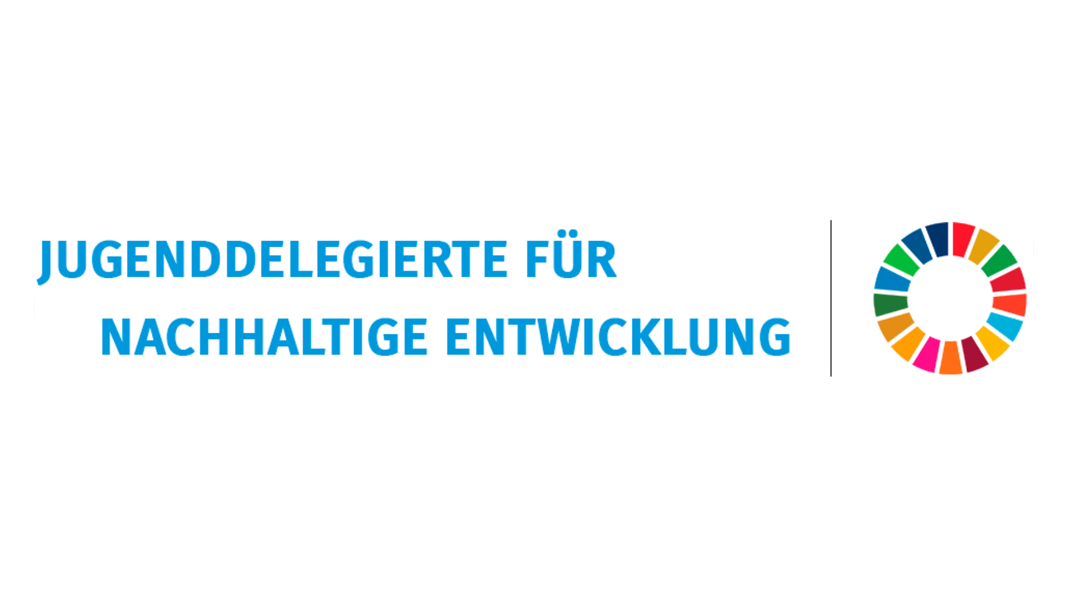VNR 2025 Joint contribution by the German Federal Youth Council, the UN Youth Delegates for Sustainable Development and Greenpeace Germany contributed to Germany’s Third Voluntary National Review (VNR) to the HLPF 2025, with the involvement of various youth participation bodies and delegate programmes
Young people are strongly supportive of the 2030 Agenda and the implementation of the SDGs in, with and by Germany. The inclusion of civil society, and young people in particular, in implementing the 2030 Agenda is key to speeding up progress towards the SDGs. That inclusion is not about decision-makers being generous; rather, it is the young generation’s right. What is more, they are the ones who will be affected the longest by the political decisions made today. Although a fifth of the world’s population is between 15 and 25, young people often have few means of shaping political and social areas. Yet many have a network of international contacts and can serve as a professional resource with unique expertise that can be drawn on in shaping today’s and tomorrow’s world. Sustainable development and the 2030 Agenda are keys to justice – between both societies and generations. Young people’s views on Germany’s National Sustainability Strategy worldwide show that Germany’s efforts are having an impact and can truly lead to immense progress on the 2030 Agenda.
In the German sustainability architecture it has become clear that participation works. Youth organisations, such as the German Federal Youth Council, the youth participation formats established within German ministries and the UN Youth Delegation for Sustainable Development, are indispensable in the implementation of the 2030 Agenda. They bring with them unique creativity and expertise, have intrinsic motivation to effect change, and actively reflect the connections between the SDGs in their lives. Yet young people in Germany and across the world are greatly concerned about the SDGs, which are not globally on track. Indeed, progress in some areas has actually been reversed. Young people are also observing with concern the implementation of the SDGs within Germany. The guiding principle of “leave no one behind” remains and the interlinkages between, for example, SDGs 4, 5, 13 and 16 should be leveraged in order to speed up progress. Education is the key to a self-determined life and inclusion in society, economic activity and political processes. It is essential to speed up progress on implementing SDG 4, Education for Sustainable Development (ESD) and UNESCO’s “ESD for 2030” programme. The principle of “leave no one behind” must be applied, in accordance with SDG 5, to mean the gender-specific inclusion of all people, particularly marginalised groups and those facing multiple forms of discrimination. Gender-based violence towards women affects not only the women themselves but can also impact on the development of any children they may have. Violence towards women is an abuse of human rights. Young people are already feeling the impact of the climate crisis and future generations will be massively influenced by it and face immense challenges. That is why young people are strongly campaigning for increased climate action (SDG 13). Furthermore, young people are drivers of change and upholders of peace. Those are qualities that should be leveraged and strengthened (SDG 16).
The young generation is clamouring for global justice and a peaceful future. There is an urgent need to accord these aims the priority they deserve and at last speed up progress towards them.
This statement was drafted jointly by the German Federal Youth Council, the UN Youth Delegates for Sustainable Development and Greenpeace Germany with the involvement of various youth participation bodies (Coordination Office for Youth Participation in Climate Policy, Youth working group on foreign climate policy, youpaN) and delegate programmes (young delegates from NAJU (Youth Association for the Protection of Nature) to the UN Biodiversity Conference (COP16) and the Children and Youth Major Group to the UN Environment Programme, for example a sustainability activist from Kenya).



